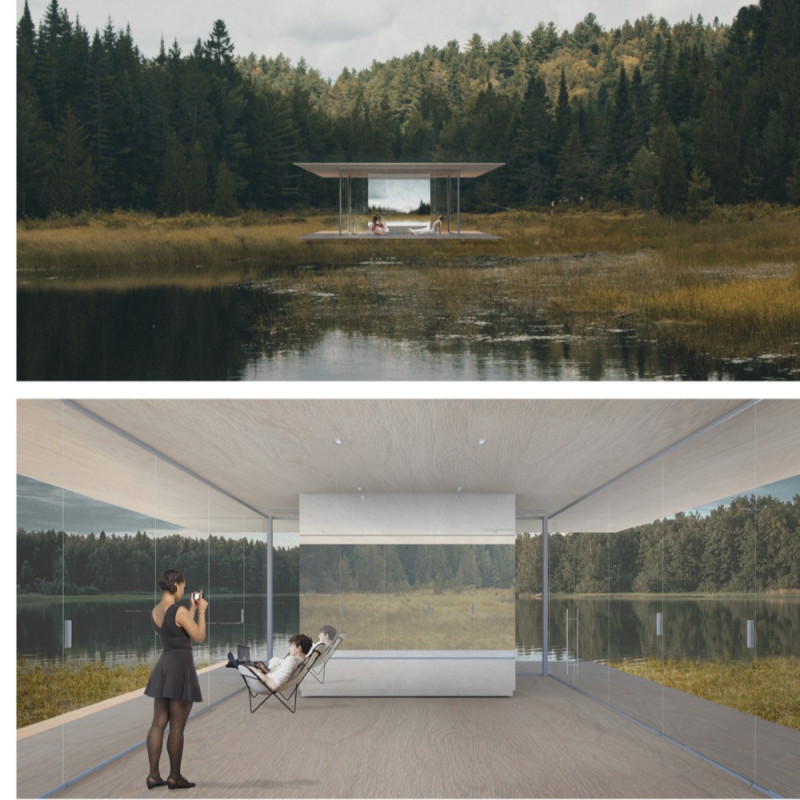5 key facts about this project
"RULE IT" is a response to the challenges of living in smaller homes, a situation that has become more pronounced due to the recent global pandemic. It addresses both the limitations of space and the importance of flexibility in how people interact with their environments. In an urban setting where every square meter matters, the design creates options for residents to personalize their space while ensuring functionality.
Design and Functionality
At the center of the design is a box that can rotate on four sides of the house. This feature is controlled by a mobile app, which allows residents to change how they use the space. The rotation is supported by a wireless energy system hidden in the ceiling, working in a way similar to how smartphone chargers operate. This innovative solution allows for custom living arrangements while maintaining connections necessary for utilities such as water.
Spatial Arrangement and Privacy
The layout reduces the available space to 25 square meters, yet it cleverly organizes areas for different uses. Privacy is well thought out; a system of curtains that can be pulled from the box provides residents with the option to create distinct workspaces. This approach enables a balance between open common areas and private zones, catering to modern lifestyles that require flexibility.
Material Considerations
Materials chosen for the project focus on sustainability. Important components include solar panels that harness energy from the sun, polyethylene pipes responsible for water supply and grey water management, and ceramic filters that ensure clean water. The inclusion of an electric heating boiler and a recycling unit with a thermostatic mixer supports an efficient use of resources in everyday living.
The exterior features a mirror coating that expands perceptions of space. This reflective surface adapts to its surroundings, capturing changes in light and offering a lively interaction with nature throughout the day. Rather than simply occupying space, the design engages with it, pushing the boundaries of what compact living can offer.



















































